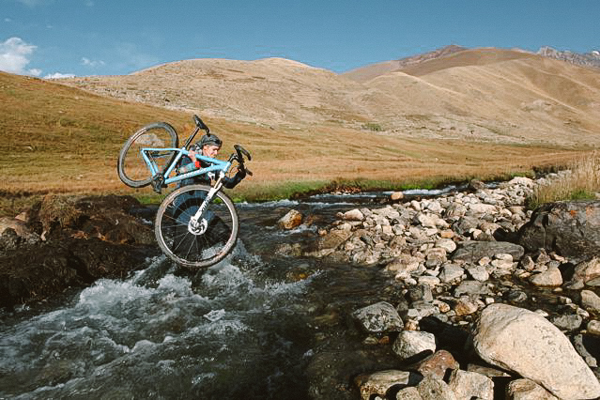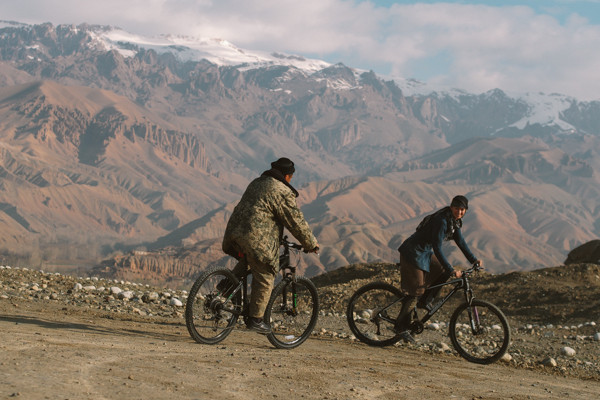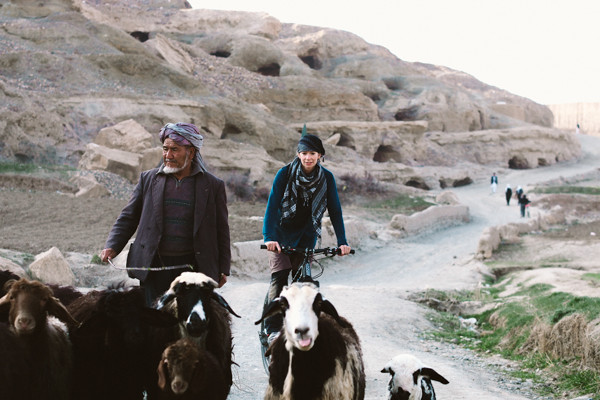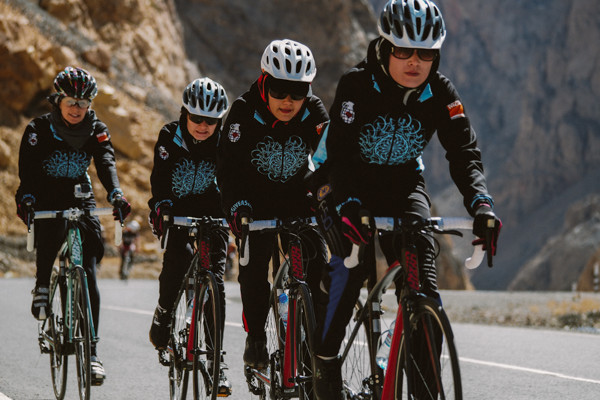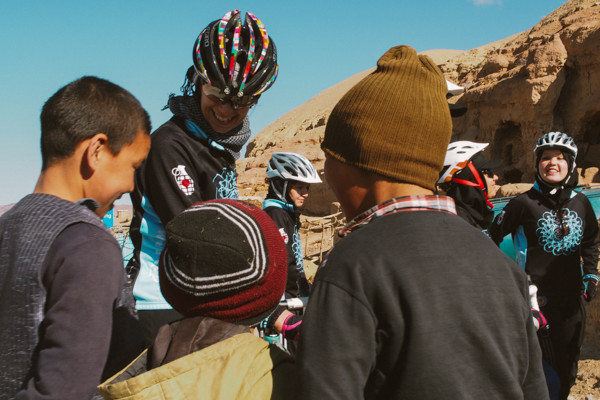Redefining Risk: Interview with Shannon Galpin of Mountain 2 Mountain
How do you change the perception of victims? How do you fight for women’s rights and shatter the global and societal barriers that impede equality? How do you help the forgotten, ignored, and silenced to find their voices?
These are only a few of the questions that Shannon Galpin works to answer. Shannon founded the non-profit Mountain 2 Mountain in 2006 to ‘create a voice and empower women and girls in conflict zones.’ A survivor of rape, she knew that she wanted the world to be a better and safer place for her daughter. She stepped up to propel change herself by connecting communities and starting conversations that bring the real issues of basic human rights, societal expectations, and violence prevention to the forefront.
In 2009, Shannon became the first women to ride a mountain bike in Afghanistan, where the culture forbids women from riding bikes. She defies gender norms to help people see the need to reevaluate convention and traditions that are stifling women around the globe. She is also the founder of Combat Apathy, an activist organization that fights for women’s rights globally, and Strength in Numbers, a cycling program to empower women to ‘pedal a revolution.’
I had the pleasure of learning more about Shannon and how she is redefining the world we live in, one bike ride at a time.
01 | When did you find your voice?
I actually found my voice inside the women’s prison in Kandahar. Or at least I discovered the power of voice, and that acted as a catalyst to fully embracing my own story and my own voice. I realized that the ability be heard was incredibly healing and cathartic, and that having a voice is empowering, even in a prison.
02 | How did you find the strength to defy gender norms in Afghanistan and ride a mountain bike?
It was easier than you would think in regards to strength. It was less about strength and more about curiosity and the desire to connect to the environment and the people of Afghanistan. The bike became an incredible ice-breaker in many parts of the country whenever I rode it, opening up conversations and allowing for a shared back and forth of culture and storytelling.
03 | What do you wish people in the US knew about people in Afghanistan?
That they are some of the kindest and most resilient people I’ve met, living in one of the most dysfunctional environments I’ve seen. They have survived four decades of war and conflict and yet, day by day, they live their lives, and hope for a more peaceful society. They want the same things we all do. Healthy families, safe communities, and opportunity.
04 | Why do we need to change the perception of victimhood? What can we do as individuals, sisters and friends to empower each other?
I think the current models we use to define victims, whether that be individual victims or entire societies, is incredibly dis-empowering. If you label someone a victim, it implies subconsciously that they need to be saved and eliminates the actions that would empower them to be catalysts for change or voices in the larger story.
05 | Why do we need to redefine risk in order to make change?
Because risk is inherent to change. You can create change, especially the ones we want to see in the world around human rights and justice, without risk. It doesn’t have to be life-risking, jump into the abyss, type of risk. But stepping outside of the box, using your voice, taking a stand, rejecting the status quo, and combating the apathy we all feel at times in the face of the injustices we see, all take a risk of some sort and its necessary if we are going to see the changes we want to see in the world.
06 | What advice do you have for women who want to find their voices?
The first step comes with owning your own story, the good, the bad, the beautiful, and the ugly. Finding your voice means looking deep into the closet where we hide the secrets and our wishes and acknowledging that everything that we have done, and everything that has happened to us is what makes us who we are. Voice can only come out when we are living authentic lives and willing to be vulnerable. I didn’t find my true, authentic voice until I was willing to really acknowledge the importance of my own sexual assault and the role it played in my life. Now I am ready to roar.
*Shannon’s Memoir, Mountain To Mountain: The Book will be available for purchase on September, 16th. Pre-order your copy today.
Learn + Connect
Learn more about Shannon Galpin + Mountain 2 Mountain
Connect via Facebook and Twitter
Purchase your copy of Mountain To Mountain
From the Editor
At Conscious, we are inspired by remarkable people, and so we set out to tell stories that highlight real human interactions and human dignity. You can read more stories like this when you pick up your copy of Conscious Magazine. Subscribe today via our Conscious Shop and subscribe to Conscious Updates.

